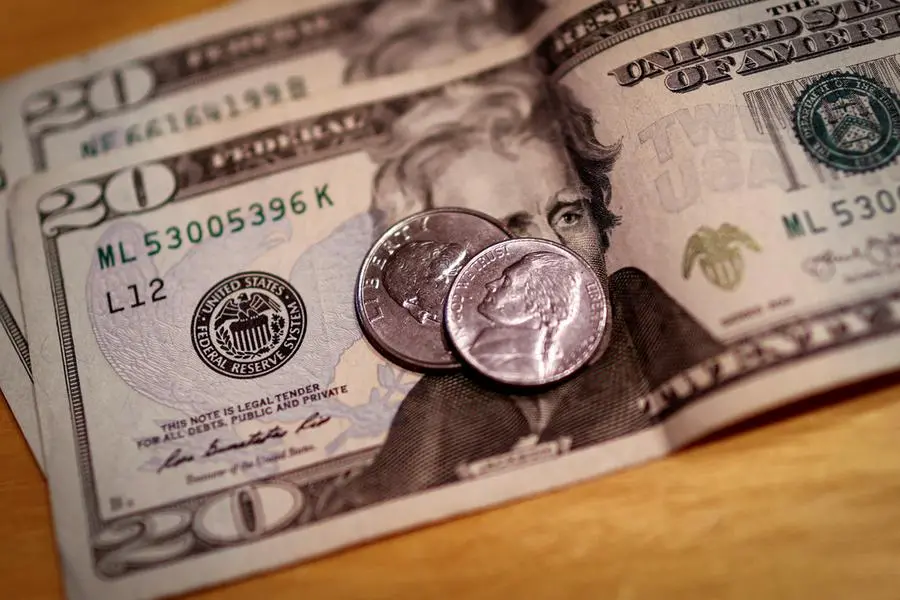PHOTO
SINGAPORE - The dollar was softer on Friday as traders geared up for Federal Reserve Chair Jerome Powell's speech at Jackson Hole, while the yen led gains among major currencies after Bank of Japan (BOJ) Governor Kazuo Ueda reaffirmed his hawkish stance.
Central bankers will be key in setting the tone for financial markets over the coming days as a gathering of the world's most influential monetary policymakers gets under way in Jackson Hole, Wyoming.
A relatively big mover on Friday was the yen, rising 0.3% to 145.82 per dollar after Ueda reaffirmed his resolve to raise rates if inflation stayed on course to sustainably hit the 2% target.
"His (Ueda) comments suggest that market turbulence won’t deter the BOJ from considering more rate hikes in the future even if the next move isn't imminent," said Vasu Menon, managing director of investment strategy at OCBC.
"As long as the move in the dollar-yen is orderly and gradual, this should not rattle global markets as much as it did earlier this month."
Speaking at parliament, where he was summoned to explain the BOJ's decision to raise rates in July, Ueda however warned that markets remained jittery and may affect the central bank's inflation forecasts.
The rate hike from the BOJ sparked a massive unwind of carry trades funded by the yen, and that, coupled with worries of a U.S. recession, triggered a global selloff in early August. However, most markets have recovered since then.
The dollar index, which measures the greenback versus six major peers, was 0.11% lower at 101.37 and remained close to the 2024 low of 100.92 it touched on Wednesday. The index is headed for fifth straight week of losses.
EYES ON JACKSON HOLE
Powell is due to speak at the Kansas City Fed's annual Jackson Hole research conference at 10 a.m. EDT (1400 GMT) and traders will tune in to gauge by how much U.S. borrowing costs could go lower in the near term.
Markets are now pricing in a 76% chance of the Fed cutting rates by 25 basis points (bps) at its September meeting, the CME FedWatch tool showed, with traders backing away from bets on a big 50 bps cut.
Overall, they see 100 bps of cuts over the next three meetings, although some analysts think markets are being far too aggressive and could be disappointed if Powell is cautious.
"I wouldn't expect Powell to even allude to a 25 bps cut versus 50 in terms of what might come in September," said Orla Garvey, senior fixed income portfolio manager at Federated Hermes.
"But if he's perceived as being dovish, that is very supportive for the broader markets and could lead to more curve steepening in the U.S. because the data has been losing momentum for quite a while now and it hasn't been acknowledged by the market and the Fed."
The euro was last up 0.1% at $1.1123, not far from the 13-month high it touched on Wednesday, while sterling rose 0.2% to $1.3125, just shy of the 13-month high it hit on Thursday.
British consumer confidence held at an almost three-year high in August, bolstered by improving sentiment around personal finances and major purchases, according to a survey that added to positive signals in the wider economy.
(Reporting by Ankur Banerjee in Singapore and Sruthi Shankar in Bengaluru; Editing by Christian Schmollinger, Shri Navaratnam, Kim Coghill, William Maclean)





















